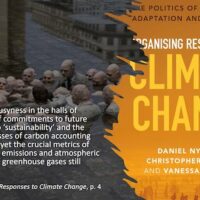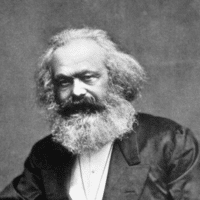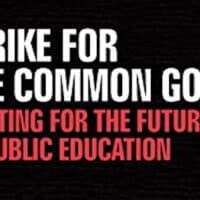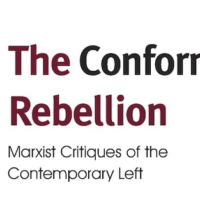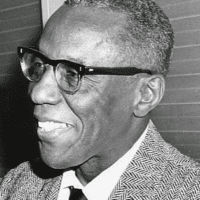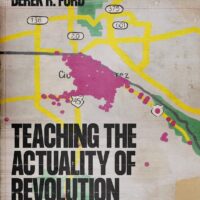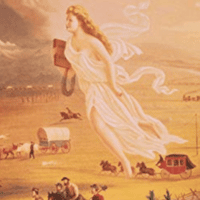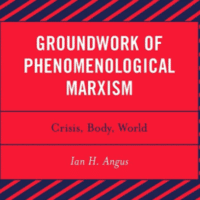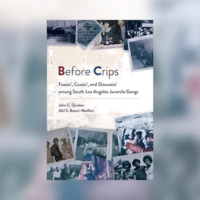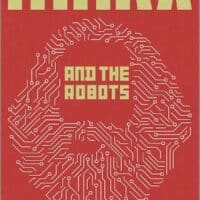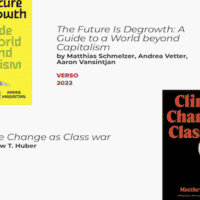-
On Michael Lebowitz’s ‘Beyond Capital: Marx’s Political Economy Of The Working Class’
‘Beyond Capital’ helps us to understand why capitalism continues to persist despite endless crises, by drawing our attention to the messiness of human beings and the multiple circuits that reproduce capitalism as a complex and contradictory totality.
-
Review of “Organising Responses to Climate Change: The Politics of Mitigation, Adaptation and Suffering”
Much has been written about climate change or, to use a more truthful term, global warming. But not much has been written about “Organising Responses to Climate Change,” which is the title of Daniel Nyberg, Christopher Wright and Vanessa Bowden’s new book.
-
Review of “Critique of the Gotha Program,” by Karl Marx
This new edition of Marx’s 1875 ‘Critique of the Gotha Program’ comes with a few surprises in translation for Marxists who have previously interpreted it as justification for the continuation of wage-labour and commodity production, under the ‘dictatorship of the proletariat’ in the ‘first phase’ of socialism/communism.
-
Why I wrote a book about my pet parrot
Michael & Debby Smith write about 30 years of living with a parrot whose intelligence and emotional awareness challenges our human-centric world view.
-
Lessons from the Teachers’ Strikes
In 2012, the Chicago Teachers Union (CTU) went on strike. That marked the beginning of a wave of job actions that would reach West Virginia, Kentucky, Oklahoma, Arizona, Los Angeles, and other cities and states before returning to Chicago in 2019.
-
A masterpiece of Socialist Realism
BRUNI DE LA MOTTE recommends a classic of East German literature that gives a human face to difficult political choices.
-
“The Conformist Rebellion: Marxist Critiques of the Contemporary Left”
Already a century ago, political thinkers and philosophers were confronted with an apparent paradox: the failure of revolution.
-
Southern Girls: Theater Review
Would Florida’s Fascistic Governor Ban This Play and Burn the Script?
-
Book Review: ‘No Equal Justice: The Legacy of Civil Rights Icon George W. Crockett’
David Gespass has been on the editorial board of the National Lawyers Guild Review for over twenty-years including several years as Editor in Chief. He is a past president of the National Lawyers Guild. David is doing his best to retire from the active practice of law with only moderate success.
-
Dismantling the cult of Churchill
Tariq Ali’s new book examines the disconnect between Churchill’s popular image and the larger context of his life and times.
-
Netflix’s ‘Descendant’ shows capitalism continues to oppress African descendants
In the spring of 1860, wealthy businessman Timothy Meaher made a bet that he could illegally kidnap and ship Africans from Africa to Mobile, Alabama, without being detected by federal officials.
-
A Review of Derek R. Ford’s ‘Teaching the Actuality of Revolution: Aesthetics, Unlearning, and the Sensations of Struggle’
History doesn’t happen because a small group of people share a complete political identity; it happens because masses of people shed their timidity, risk their reputations, livings, freedom, and lives, and let the actuality of revolution guide their every move.
-
“If there is to be a livable future, it will be a future offline”
Jonathan Crary’s new book excoriates the digital world of late capitalism.
-
‘Capitalism as Civilisation: A History of International Law’ review
Readers of the first volume of Capital sometimes mistakenly conceptualize capitalism in terms of a relationship between workers and a single capitalist. In doing so they fail to notice that for Marx capitalist society is not one big capitalist enterprise.
-
Ian H Angus – “Groundwork of Phenomenological Marxism: Crisis, Body, World”
There is much more here than can be covered in a brief review, including interesting discussions of language, laughter, neo-mercantile capitalism, digital information and abstract nature, a correlate to abstract labor.
-
Book Review: ‘Before Crips’ dismantles dominant narrative on gangs
For the past several decades, the media has severely manipulated the question of gangs and their socio-economic origins. John C. Quicker and Akil S. Batani-Khalfani’s new book, “Before Crips: Fussin’, Cussin’, and Discussin’” among South Los Angeles Juvenile Gangs, exposes the mainstream stigmas and half-truths surrounding gangs.
-
‘Red Valkyries: Feminist Lessons from Five Revolutionary Women’ by Kristen Ghodsee – Review
In exploring the lives of the revolutionary socialist feminists of the past, Red Valkyries demonstrates the value and importance of feminism in the 21st century, argues Rachel Collett
-
A Wisconsin story
Jon Melrod brings back to us a vital moment in the history of the U.S. labor movement, a moment in which the demographic transformation the workforce but also the lingering memory of 1960s social movements and unrest, raised the possibility of radicals racing to the front of class conflicts.
-
“Marx and the Robots. Networked Production, AI and Human Labour” – book review
A new collection of essays provides important sceptical discussions of the impact of robotics and AI on the economy, finds Elaine Graham-Leigh
-
Class struggle against growth
The Future is Degrowth: A Guide To a World Beyond Capitalism by Matthias Schmelzer, Andrea Vetter, and Aaron Vansintjan (Verso 2022) and Climate Change is Class War: Building Socialism on a Warming Planet (Verso 2022) are Verso’s two most recent “guides” to combating the climate crisis.


